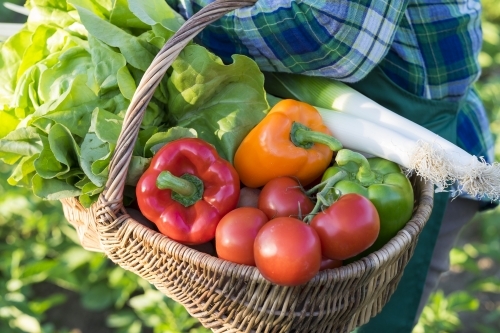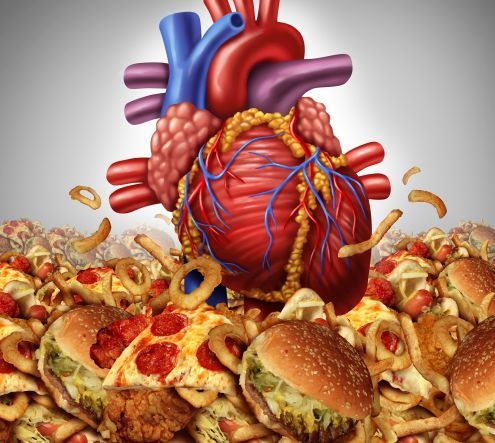
Ever wonder why so many people are fat in a country where so many others go hungry? Does the question ever cross your mind? In an article by Joel Berg, executive director of the New York Coalition Against Hunger in New York City, he talked about the paradox. It's not new to me and probably not you either. But the insights shared by Mr. Berg widened my perspective. He helped open my eyes to the ludicrous policies that subsidize our food farmers and the cutbacks that alter senior citizens' ability to pay for the high-cost (and rising) housing and care expenses.
I learned that a high percentage of our tax dollars went to growing food products that process for additives like high fructose corn syrup and vegetable oils. They're used to sweeten and add fat to junk food products in the name of good taste. These empty-calorie additives find their way into junk foods and beverages. Food products infused with corn and soy additives line our grocery shelves and kitchen pantries with breakfast cereals, baked goods, candy, frozen desserts, ketchup, dressings, and sauces that are household favorites. Artificially sweetened and packed with calories, food products like these are high in taste but low in nutritional value.
- Is it because we're slaves to our taste buds and conveniences?
It's disheartening because the poorest Americans are the hungriest today, and they eat so little that they lose weight. With cutbacks, they're food choices become limited due to inadequate SNAP allotments or food bank pantry donations. While others eat deficient foods that make them fatter.
Overweight and Obesity-Related Health Problems in Adults
It's a real problem for older adults. The Center for Disease Control (2007 -- 2010) found 8 million adults ages 65 to 74, and almost 5 million adults ages 75 and older are obese. This number doesn't account for all the people under 65. Being overweight or obese isn't just a cosmetic problem either. These conditions greatly raise the risk for other health complications like coronary heart disease, type 2 diabetes, high blood pressure and stroke, abnormal levels of blood fats, cancer, and a whole slew of health-related issues. Is it any wonder why our society pays tens of billions of dollars annually in extra health care spending? To me, this is beyond crazy.
The Could-be Solutions to Hunger and Obesity
Last year, President Obama, signed the new Farm Bill (2014). While it's encouraging to find that a new Farm billed replaces a very inadequate one, it doesn't make comprehensive changes to the way farm programs work. For instance, it doesn't fund much innovation through the local food system development and conservation to the extent that pro-healthy food growers would like to see. The policies still favor the "big" farmers that grow food products that promote the obesity problems and climate change. Some say at least we've altered an antiquated bill, but others say that legislature could have done so much more for our society.
Still today, too much of our tax dollars are wasted on junk food. What's tough to understand is why isn't more tax revenue devoted to farmers who grow healthy foods? Even if the costs of growing fruits and vegetables are more costly (which is doubtful) than corn and soy products, I'm in favor of it. Doesn't that make sense? If we increase healthy eating habits wouldn't that have a direct impact on the rising costs of healthcare? I know bureaucracy is complicated and cumbersome, but for heaven's sake, it's our tax dollars. Shouldn't Americans fight to change the nonsensical junk food madness?
Putting Our Tax Dollars to a Better Cause
Another place I'd like to see tax dollars go to work is to the food programs that benefit older people (and low-income families) eat better. According to the National Council on Aging, the average SNAP benefit for elders equals only about $1.44 per meal. How much food can one buy on $1.44, other than a cheeseburger? Maybe it's time we raise the benefit? Plus, the application process for SNAP needs simplifying too -- its complexity holds many older people back from applying for it.
There are many parts to the hunger issues. But fortunately, local city organizations are aggressively looking for solutions to solve and lessen hunger's grip on those with meager resources. Couldn't the U.S. government do the same? If they did, maybe the older adults and the poor could buy better foods and pay their living expenses too. Mr. Berg suggests, "All levels of government should work together to lower property taxes for middle- and lower-income elders, while increasing rental assistance." Read other tips for the federal government by Berg.
What do you think? Would it make sense to shift a portion of the billions from the farmers who grow corn, soy, cotton, and wheat, to the local farmers who grow fruit and vegetables? And shouldn't we transfer a portion of the subsidies to home delivered meals, housing costs, and SNAP?
While golden arches and finger-lickin' drive-thru conveniences saturate our city blocks, let's not fund the unhealthy foods with our hard earned tax dollars. What do you say?
Earlier on Huff/Post50:


